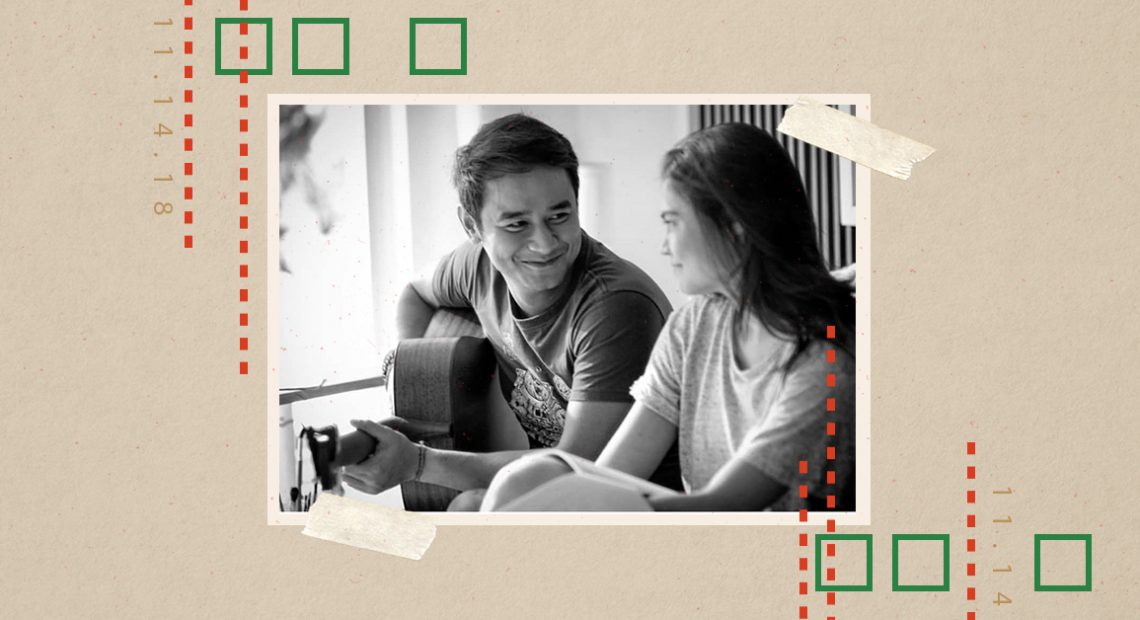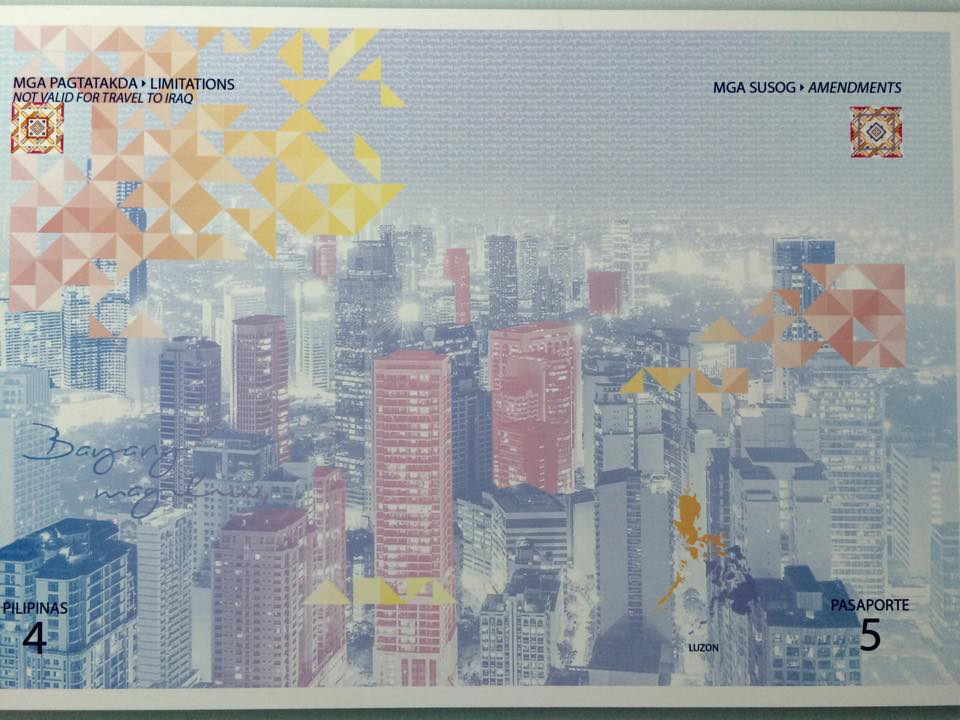Armi Millare is an indelible force in the OPM industry. For years, her music has been a reliable part of the airwaves, our playlists, and our go-to karaoke songs. “Oo,” one of UDD’s earliest and most famous hits, still resonates with listeners 10 years later. The magic lies in Armi’s ability to move emotions through her affecting vocals and visceral songwriting. Because of that, her music—as it should—allows us to experience joys and pains vicariously.
Eventually, the voice that made us feel things found its way to the silver screen. “Tadhana,” another fan favorite, was used as theme song for 2014 romantic comedy film Antoinette Jadaone’s That Thing Called Tadhana. In 2015, her version of Sampaguita’s “Tao” aptly ended Erik Matti’s Honor Thy Father. In the same year, she also scored and wrote a new song, “Young Again,” for Mario Cornejo’s Apocalypse Child.
Three years later, Armi reunites with Arkeo Films for Joel Ruiz’s feature film Kung Paano Siya Nawala. Joel, the director behind the viral #KwentongJollibee ads, describes the film as “a contemporary urban love story about letting go.” The film explores how the shy Lio (JM de Guzman), diagnosed with a condition called prosopagnasia or face blindness, falls in love with the outgoing Shana (Rhian Ramos).
As they say, sound is half the picture. We talk to Armi about the importance of music in film, her creative process, and the long journey of the song “Anino.”
How are you? What have you been busy with lately?
Hi, Oliver! I’m good, thanks. I think I’m “back” tying loose ends for the new-old UDD album. [I] have been writing new music for other projects as well.
In an article, you mentioned that this film is some sort of reunion with director Joel Ruiz and Arkeo Films. But can you please tell me how you got on board?
Yes, that’s right. After working with Joel on his last film (The End is Bigger Than Love), he said he still wanted to work together for a full-length film. Of course I said yes instantly and waited patiently for this project as I loved working with Joel and Arkeo. They’re relentless but subtle and they have this fantastic work ethic. They always give their collaborators full creative freedom which I appreciate very much.
View this post on Instagram
What was your first impression of the film?
My first impression was I couldn’t tell what genre it was. it wasn’t trying to hard-sell a pigeonholed idea of the movie which isn’t a bad thing at all. Of course, we know there’s a love tandem but when people see it, they’ll realise what that is I’m trying to point out. The film makes a good portrayal of the spirit of the times, and there were many moments in the film I could swear were possible in real life.
Did you easily figure out the musical direction you wanted for the film after viewing it?
It is always a challenge. It’s a lot of mental work—getting into the ‘mind’ of the characters, the mind of the director and thought behind the screenplay. Do they really need this cue in here? Or maybe we don’t need music here; it’s always a mental debate.
Tell me about your process for Kung Paano Siya Nawala. Did you do it chronologically? Or did you start with a specific scene?
I started with the meet-cute. I think it’s an important part of any film, and it sets the tone and idea of where our characters may take us, so my closest experience to the meet-cute is making the music really part of Lio and Shana meeting for the first time as well. It usually starts out chronologically for me, but definitely not like that when in the process of rewrites, or when one morning you wake up without watching the film even, and think this entire scene needs new music.
Is there any particular scene that you found difficult to score? What was it? And why?
I think the most difficult part was figuring out how to tell Lio’s story through music. He’s a complex one and you don’t want to give his whole story away (I think he won’t like it, either) so, you want to run with his character on parallel lines especially towards the end.
The film borrows UDD’s “Anino.” If you don’t mind, can you tell me the story behind the song?
“Anino” is such an old song, a demo that got leaked which people just kept passing around, if you can imagine the years it’s been happening. We tried to put it in each album we’ve released but we really wanted to be thorough with it so it took us that long to share this with the listeners. We’ve finally decided that it was time to end this wrestle on how to interpret the song. We’re very glad and proud that “Anino” gets to be part of this film.
The song is about testing yourself whether or not you should fall in love or to put it bluntly, admitting to the process of letting love decide—as if the decision was ever yours.
How did you come up with the decision to use the song for this film?
I thought I could write something new for the film but upon watching the first cut I knew “Anino” was the one for it. The song is about testing yourself whether or not you should fall in love or to put it bluntly, admitting to the process of letting love decide—as if the decision was ever yours. It’s a 16-year-old song that eerily fits the psyche of our characters.
For Apocalypse Child, you wrote a song called “Young Again.” Apart from “Anino,” should we expect any new song from you in this film?
There’s a different take on Anino that people will only hear in the film. I’m happy we didn’t need another song because that strengthens the choice everyone made to use “Anino” and it’s a very special song not just to the band, but to the most loyal UDD listeners who have heard the first version.
Silence is as important as sound in film. As a musician and a film scorer, what do you think of silence?
Silence is a luxury. I don’t even bother so much when I hear my ears ringing—it only means I’m in a really quiet place and that’s rare to find now. And yes, sometimes I think the best lines you could ever sing are delivered better in silence as well as how some of the best lines you could tell a person could only be acceptable when put into music.
I think film is the strongest creative medium out there—it can use your senses, feelings and thoughts against you.
How would you define good music for film?
Good music for film I think happens when the elements at their best are fit in one scene. From its cinematography to the actors on each second that it runs. It’s a process of many moving parts and if those parts work well, it makes the film music sound good. And then the music makes the lighting look better, and then the lighting makes the film feel certain intensities. We’re talking about all the senses equally working together to get that feeling that the film wants you to feel. I think film is the strongest creative medium out there—it can use your senses, feelings and thoughts against you.
Most of your listeners get acquainted to your music through UDD. But can you tell me when and how did you start scoring films?
What got me into scoring films was a friend of mine in college. We would work on projects of film students, whoever needed music to go with their work. We just kept taking projects together and it was fun to do considering that this was 2003 and technology wasn’t exactly on our side yet, but there were really a lot good memories and so much learning involved.
Music for film, at least for me is not exactly about what I think and feel (that comes in last and sometimes not necessary). It’s about letting the film express itself more in the form of sound.
How does your approach to making music for film differ from your process of making music for UDD or even for yourself?
It’s similar in one way: We’re creating music for characters. Except that it is explicitly limited to these characters in particular. With UDD or writing songs, it is implied that they’re autobiographical, where I’m sometimes the character, but some bits of it are a product of my subconscious thoughts as well and some are nearly fiction. Music for film, at least for me is not exactly about what I think and feel (that comes in last and sometimes not necessary). It’s about letting the film express itself more in the form of sound. To creatively empathize with the many people involved in making something is a good kind of change for me. Working with a structure of sorts but pressing on emotions to complete that structured body of work.
This is a project under Stoa Sound, right? Can you tell me more about Stoa?
Stoa Sound is one branch of Stoa Studios which was established last year. It’s a place where I share some wellbeing practices, practical philosophy that has kept me going, and where non-music ideas and designs that have sat in my head for years come to life. But I’m a musician first before I am anything so it makes sense to do another branch just for music.
In Stoa Sound, I am joined by Malek Lopez who has been one of my longtime collaborators in many other projects. With his background in film scoring and arranging, I thought we’d legitimise our working chemistry by pursuing Stoa Sound after 10 years of hanging in the studio making music for ourselves and talking shop.
I’m listening to your version of “Tao” as I write these questions. Three years since I first heard your version, it still gives me chills. I think it’s the perfect song to end Honor Thy Father. I listened to both your version and Sampaguita’s repeatedly after watching the film—I still do these days. The song just really speaks to me. Can you name any music that you loved from a film? Or maybe a favorite soundtrack? Something that stayed with you.
There are many films I have loved, some because of my affinity with music-and-film together because it always gives full impact but there are others that are just so cleverly done it sticks out—the score on Dunkirk by Hans Zimmer and his usage of what they call the Shepard scale, and using it as a timescale to know where we are in the film is insane. I love how music is used differently in ways I could never think of. Of course, there are other great ones like Cinema Paradiso by Ennio Morricone and Toni Takitani, which I should see again.
As for something I have written that’s stuck, I think every project is special. I feel blessed I get to express myself in many ways and that it resonates with people who are willing to take a risk with me.
Joel Ruiz’s Kung Paano Siya Nawala opens in cinemas nationwide today.

























Comments